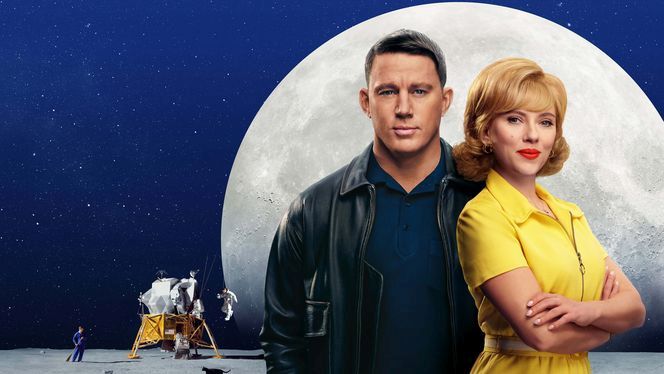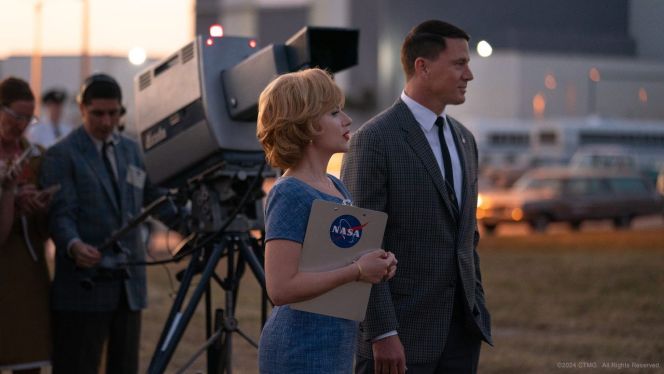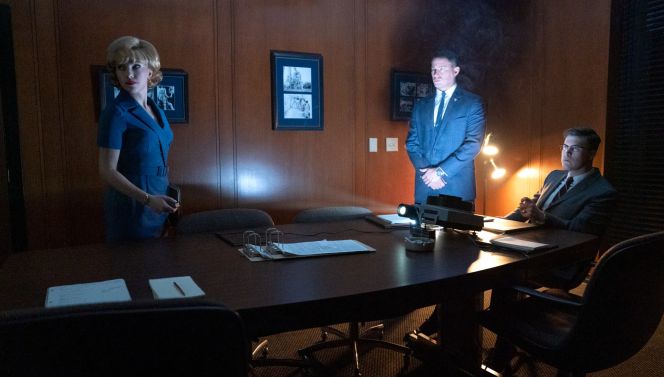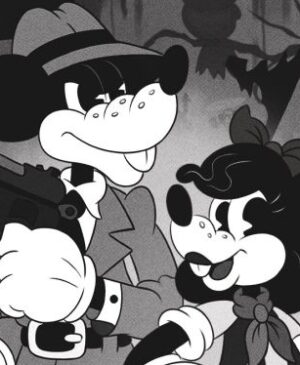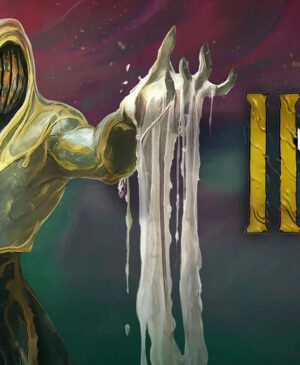MOVIE REVIEW – The journey from script to screen in Hollywood is often fraught with unexpected twists and turns, full of challenges and surprises. Initial drafts get scrapped, new writers are brought in, actors change, and directors pass the baton to one another, each with their own distinct vision. Most productions navigate this obstacle course, and only the luckiest make it all the way to the big screen, bearing countless creative imprints—most of which remain hidden from the audience.
That being said, the journey of Fly Me to the Moon from script to screen doesn’t seem particularly turbulent. The original star was replaced by another, and a well-regarded television director, Jason Bateman, was swapped out for Greg Berlanti. So how do we explain the film’s overall tonal disarray, that peculiar wobble evident both in its marketing and final form? And perhaps even stranger, how does it manage to ingratiate itself despite these shortcomings?
Romantic Space Voyage or Just a Cosmic Detour?
Set in the late 1960s, Fly Me to the Moon focuses on one of NASA’s most challenging periods. The space program is still reeling from the Apollo 1 disaster, a tragic fire that claimed the lives of three astronauts. This tragedy is essential to the story—it defines the conflict and raises the stakes—yet the decision to dramatize it during the opening credits, right after some upbeat split-screen scenes, creates the film’s first “record scratch” moment. (The second comes just minutes later with a poorly-timed fireball gag.)
Launch Director Cole Davis (played by Channing Tatum, who mostly emotes through pursed lips) is a man on the edge, determined to get Apollo 11 to the moon before the Soviets can plant their flag. His stress is compounded by Congress threatening to cut funding and the American public’s waning interest in NASA. Enter Kelly Jones, a sharp-tongued marketing whiz (Scarlett Johansson, who also produces), brought in by Woody Harrelson’s shadowy Nixon operative to secure ad deals and reignite public enthusiasm for the literal moonshot. Though their goals are largely aligned, tension inevitably brews between Cole and Kelly, because—as is customary in romantic comedies—conflict is just par for the course.
Romantic Comedy or Something Else?
But is this really a romantic comedy? The trailers certainly want you to think so, and presumably, that’s why the original title, Project Artemis, was swapped out for the more commercial Fly Me to the Moon—to emphasize the love story angle. Yet as a rom-com, the film elicits little more than a shrug; Rose Gilroy’s screenplay offers some chuckles but lacks genuine laughs, and the chemistry between Johansson and Tatum barely simmers, let alone ignites. (Condolences to those hoping for a Cap and Black Widow pairing, as Chris Evans’ departure dashed those dreams.)
So, if not a rom-com, then what is it? Fly Me to the Moon plays too fast and loose with historical facts to qualify as a Hidden Figures-like crowd-pleaser, though you’ll likely leave with a renewed fondness for NASA. It’s not broad enough to be considered a parody, despite a few knowing winks in the style of Down With Love (which, incidentally, used its titular song to much better effect). Nor does it take itself seriously enough to be pitched as a prestige picture, even though Apple Original Films’ budget is put to excellent use recreating the era. The film is smart enough to gesture at contemporary issues—most notably the dangers of a flexible relationship with truth—but it’s not sharp or insightful enough to land a punch.
The Truth Hurts – But Who?
Ah, the truth. Kelly, who will say anything to close a deal, lies so effortlessly that I wondered if she might be a psychopath, which would have been an intriguing character twist. (Sadly, she isn’t—once Kelly starts catching feelings, she also catches a conscience, which is, frankly, boring—but Johansson still delivers a stellar performance.) The film clearly sides with truth over lies, which is ironic considering it endorses a long-standing conspiracy theory—that NASA faked the moon landing—and (spoiler alert) makes things even wilder by marketing the movie as if it’s all about Kelly’s backup plan to stage a fake moon landing in case the real one failed (the so-called Project Artemis), even though this subplot doesn’t appear until an hour into the film. Wild, right?
Or maybe not. As I mentioned, Fly Me to the Moon doesn’t take itself too seriously, and in the end, neither did I.
-Gergely Herpai “BadSector”-
Fly Me to the Moon
Direction - 6.8
Actors - 6.6
Story - 6.4
Visuals/Music/Sounds - 7.1
Ambience - 6.8
6.7
FAIR
Fly Me to the Moon teeters between romantic comedy and historical drama but ultimately fails to excel in either genre. Despite a talented cast and a well-executed period setting, the film ends up being a middling effort that leaves little lasting impression on its audience.

